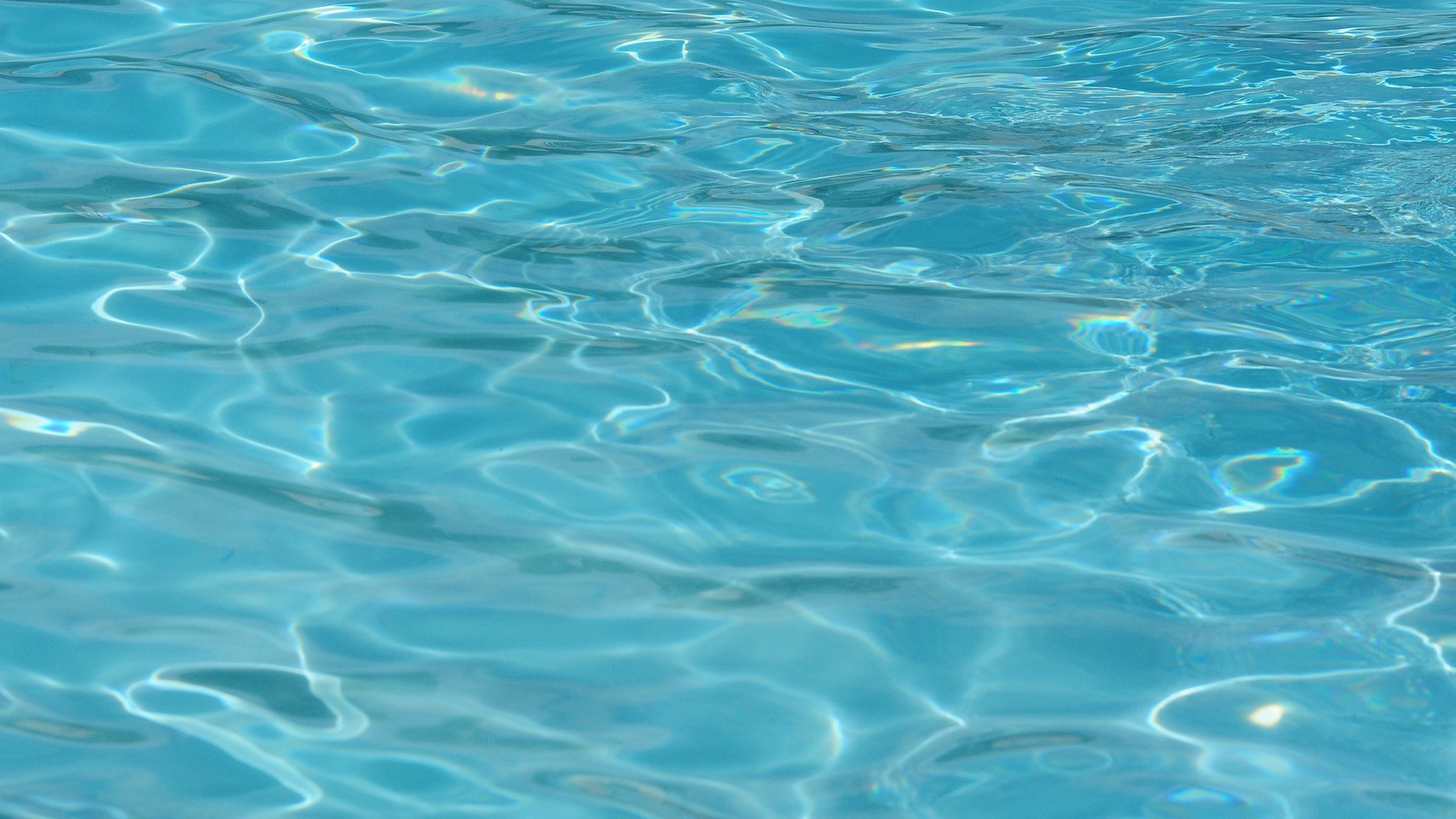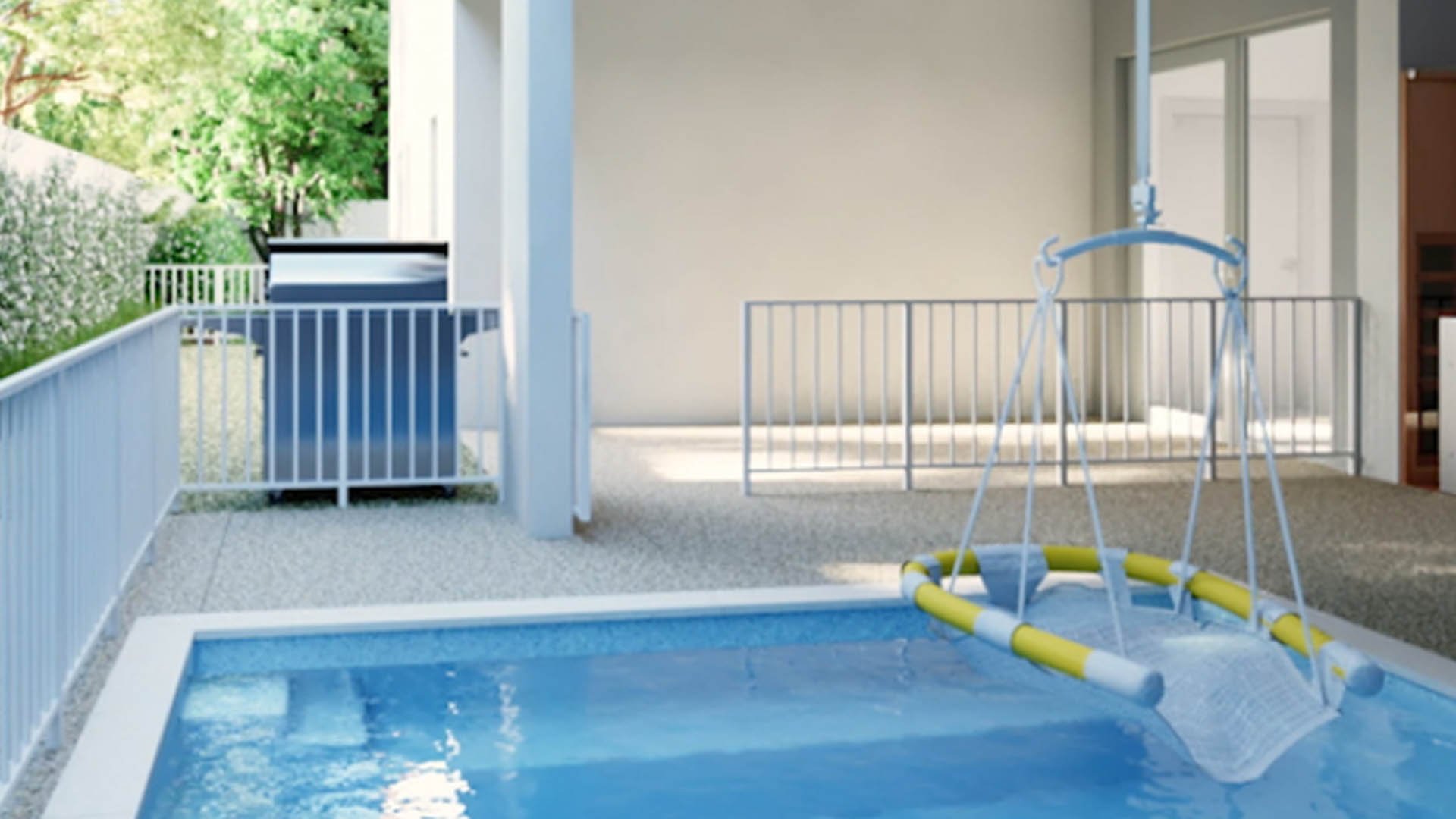Hydrotherapy – Health & Wellness Benefits
“The additional features such as the hydro pool, allied health space, large common areas & close proximity to amenities are excellent”
We wanted to build SDA homes that not only meet the SDA Design Standard but go much further toward providing NDIS participants with homes that truly feel like home. We put accessibility and livability at the forefront of our designs, and with that motivation in mind, we designed Leben Homes properties with features that promote health and happiness such as our sensory gardens, and a hydrotherapy pool.
What is hydrotherapy?
Hydrotherapy, also known as aquatic therapy, water therapy or pool therapy, is a form of exercise done in a hydrotherapy pool. These warm-water pools are much warmer than regular pools and are generally kept at a comfortable 33–36ºC.
Usually directed by a physiotherapist or exercise physiologist, hydrotherapy exercises are generally slow and controlled movements that aim to build strength and skills. These exercises include strength, balance, flexibility and general mobility exercises. Due to the warm and buoyancy of performing these exercises in a hydrotherapy pool, the experience is much less stressful for joints, bones and muscles.
What are the health benefits of hydrotherapy?
Hydrotherapy can provide a variety of benefits for people with disability or who have undergone surgery and require rehabilitation. For individuals who suffer from joint pain, back pain and arthritis, it can be especially beneficial.
Reduces Aches and Pains
Warmth and buoyancy both play a role in reducing aches and pains when exercising in a hydrotherapy pool. The buoyancy from the water reduces the pressure on joints, which allows individuals to perform exercises without exacerbating existing joint, muscle or bone pain. The warmth of the water (set to between 32 and 34 degrees) improves circulation, which relaxes muscles and reduces swelling.
Improves general fitness
Water is much more dense than air, which means that when exercises are performed in a pool the muscles need to work harder to push through the resistance of the water. However the warmth of a hydrotherapy pool combined with buoyancy, enables individuals to exercise with reduced discomfort, which could help them to exercise more regularly and for longer periods of time.
Lowers Anxiety and Mental Stress
The warm water of a hydrotherapy pool naturally relaxes muscles, but the act of exercising in itself releases chemicals called endorphins, which trigger feelings of positivity. When endorphin levels increase, stress and anxiety are known to decrease, making hydrotherapy good for the body and mind too.
Fun
Exercise isn’t always at the top of the list of fun things to do, but bring a body of warm water into the mix and that can rapidly change. Hydrotherapy can be completed in one-on-one sessions or in a group setting, so it can also be a fun social activity too.
Leben Homes Hydrotherapy Pool
With each Leben Homes featuring its own hydrotherapy pool, we hope NDIS participants will enjoy some of the physical and mental health benefits that come from hydrotherapy exercise. Interested in learning more about Leben Homes? For more information about our properties or to register your interest, visit the contact us page on our website.


